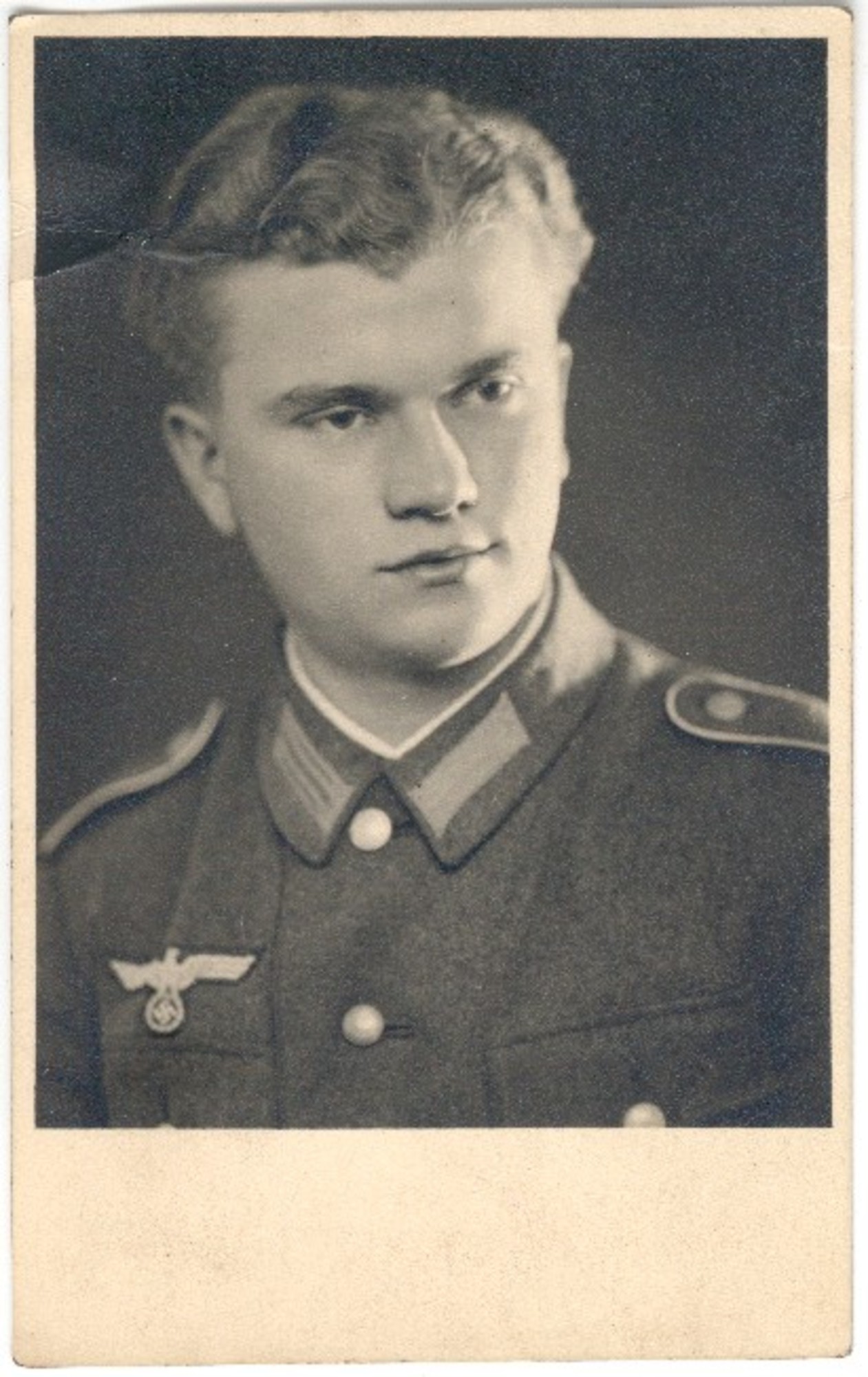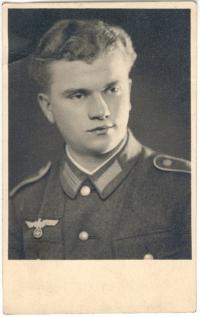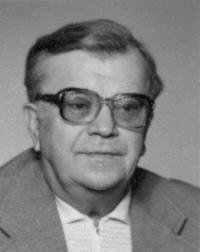I have never talked to anyone about my service in the German army during the war.

Download image
Antonín Klečka, now a sergeant in retirement, was born in 1924 in Karviná. In 1942, when he was eighteen, he was drafted into the wehrmacht. After training he was deployed as a member of a covering battalion in the French territory. In 1944, he decided to desert his unit and was subsequently captured by the Allies. After internment, he was transported to southern France and then to Naples, Italy, where he was selected to serve in the Allied army. He went through training in England, and then returned again to France as a tanker - telegraph operator. As a member of the 13th armored tank battalion, he arrived at the Czechoslovak territory. After the war he settled in Šternberk. He left the army in 1946, found employment with the railway business, but was soon forced to leave his position in 1948. After tha, he worked in manual professions until his retirement.

